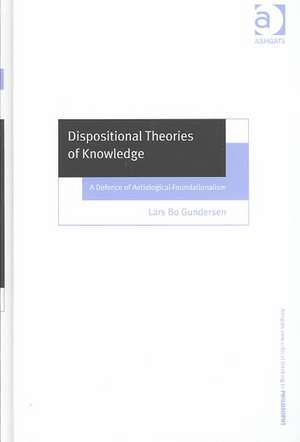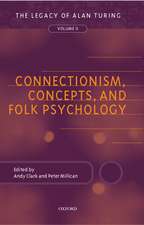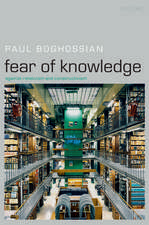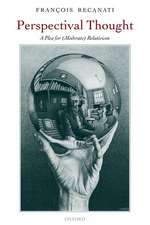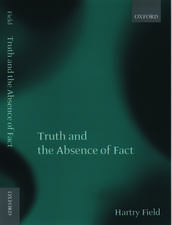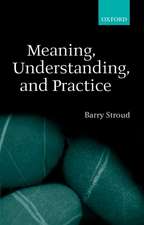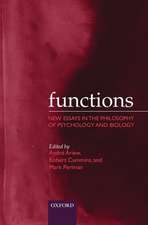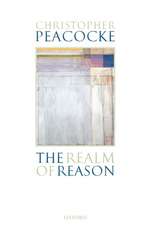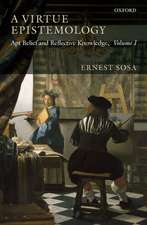Dispositional Theories of Knowledge: A Defence of Aetiological Foundationalism: Ashgate New Critical Thinking in Philosophy
Autor Lars Bo Gundersenen Limba Engleză Hardback – 20 aug 2003
Din seria Ashgate New Critical Thinking in Philosophy
-
 Preț: 466.71 lei
Preț: 466.71 lei -
 Preț: 489.26 lei
Preț: 489.26 lei -
 Preț: 489.26 lei
Preț: 489.26 lei - 25%
 Preț: 324.16 lei
Preț: 324.16 lei - 16%
 Preț: 338.33 lei
Preț: 338.33 lei - 15%
 Preț: 444.10 lei
Preț: 444.10 lei - 18%
 Preț: 997.38 lei
Preț: 997.38 lei -
 Preț: 469.34 lei
Preț: 469.34 lei -
 Preț: 469.34 lei
Preț: 469.34 lei - 16%
 Preț: 299.06 lei
Preț: 299.06 lei -
 Preț: 469.34 lei
Preț: 469.34 lei -
 Preț: 469.34 lei
Preț: 469.34 lei - 26%
 Preț: 765.04 lei
Preț: 765.04 lei -
 Preț: 489.26 lei
Preț: 489.26 lei -
 Preț: 469.34 lei
Preț: 469.34 lei - 28%
 Preț: 736.69 lei
Preț: 736.69 lei -
 Preț: 389.38 lei
Preț: 389.38 lei - 18%
 Preț: 1000.27 lei
Preț: 1000.27 lei -
 Preț: 469.34 lei
Preț: 469.34 lei -
 Preț: 469.34 lei
Preț: 469.34 lei - 31%
 Preț: 764.20 lei
Preț: 764.20 lei - 17%
 Preț: 338.33 lei
Preț: 338.33 lei - 17%
 Preț: 338.33 lei
Preț: 338.33 lei - 12%
 Preț: 312.43 lei
Preț: 312.43 lei - 18%
 Preț: 1000.27 lei
Preț: 1000.27 lei - 28%
 Preț: 739.02 lei
Preț: 739.02 lei -
 Preț: 489.26 lei
Preț: 489.26 lei -
 Preț: 480.40 lei
Preț: 480.40 lei
Preț: 233.51 lei
Preț vechi: 288.09 lei
-19% Nou
Puncte Express: 350
Preț estimativ în valută:
44.70€ • 48.57$ • 37.57£
44.70€ • 48.57$ • 37.57£
Carte tipărită la comandă
Livrare economică 21 aprilie-05 mai
Preluare comenzi: 021 569.72.76
Specificații
ISBN-13: 9780754630517
ISBN-10: 075463051X
Pagini: 168
Dimensiuni: 156 x 234 mm
Greutate: 0.39 kg
Ediția:1
Editura: Taylor & Francis
Colecția Routledge
Seria Ashgate New Critical Thinking in Philosophy
Locul publicării:Oxford, United Kingdom
ISBN-10: 075463051X
Pagini: 168
Dimensiuni: 156 x 234 mm
Greutate: 0.39 kg
Ediția:1
Editura: Taylor & Francis
Colecția Routledge
Seria Ashgate New Critical Thinking in Philosophy
Locul publicării:Oxford, United Kingdom
Cuprins
Contents: The general idea underlying modal epistemology; Modal theories of knowledge and warranted belief; Tracking dispositionality; Masking, mimicking and altering; A dispositional theory of knowledge and warranted belief; Bibliography; Index.
Descriere
This book offers an original examination of human cognition, arguing that cognitive skills are dispositional in nature. Opposing influential views in modern Anglo-American philosophy, Gundersen starts from the received premis that knowledge is analyzable in terms of belief, justification and truth, and goes on to clarify and improve on these ingredients' exact nature and internal association. Exploring a wide range of arguments offered by influential contributors in the field of modal epistemology, Gundersen argues that external conditions are secondary in developing and cultivating cognitive competence and that the fulcrum of the cognitive investigation is the fascinating interplay between and cultivation of internal cognitive powers.
